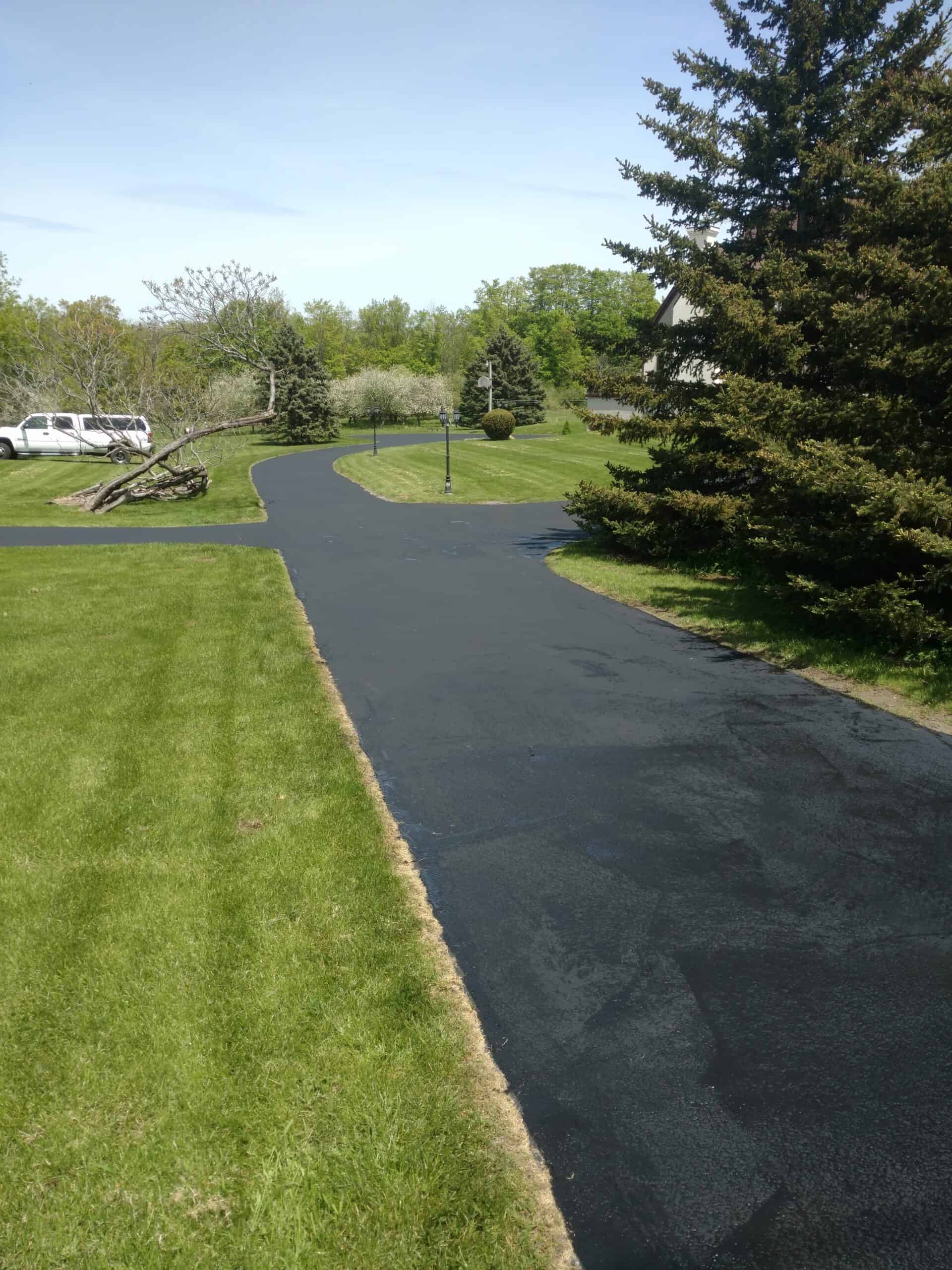The Ultimate Guide To Asphalt Sealcoating
One of the best things you can do to protect your landscapes is asphalt sealcoating. This process can help protect your patios and pavements from expensive damage. Nevertheless, this process isn't widely known by homeowners. This guide aims to tell you all you need to know about the process, including what exactly it is, its importance, and how to go about finding the right landscape service to conduct asphalt sealcoating.
What Is Asphalt Sealcoating?
Asphalt sealcoating is the process of applying a protective layer to asphalt surfaces. This protective layer helps stop water, chemicals, and other debris from damaging the surface over a long period of time, shortening its lifespan. Asphalt sealcoating is a combination of small particles and liquid used to create materials such as asphalt, minerals, and sand.How Does It Protect?
Once asphalt sealcoating is applied to patios or other landscapes made with asphalt, the oil inside seeps through the surface, replenishing the original surface oil and lubricating the binder that holds the outdoor asphalt together. This lubrication is important as asphalt needs to be as flexible as possible. Asphalt's flexibility enables it to contract and expand in cold and hot weather. When there isn't enough oil on the surface, asphalt can dry out and become brittle. At this brittle stage, cracks develop, further damaging the surface. Asphalt sealcoating helps prevent damage by small particles filling the cracks on the surface. Simply put, this process makes the surface uniform, eliminating uneven wear.
How To Know If You Need Asphalt Sealcoating
Asphalt sealcoating can provide protection for surfaces in good condition (free from large cracks) for up to 3 years. Landscapes and surfaces made with asphalt-like patios can benefit from the asphalt sealcoating at least a year after the initial installation date. You shouldn't seal new surfaces any earlier than six months. If you aren't sure if your landscapes, driveway, or patios need asphalt sealcoating, it is best to err on the side of caution. The sealing process works best on surfaces that are in relatively good condition. Sealcoating should always be seen as a maintenance procedure rather than a repair. This means if the surface is already showing visible signs of significant wear like water damage or cracking, then asphalt sealcoating isn’t for you. The alternative would be to repair the surface and then wait for the appropriate time to seal the fresh asphalt surface.How To Know If Asphalt Sealcoating Is Right For You?
As with all processes and procedures, asphalt sealcoating has benefits and demerits. Choosing this process for your surface will depend on a host of factors; however, you can expect the following benefits:Pros
Asphalt sealcoating can be a great way to improve the appearance of your landscapes. The process adds a thin layer of asphalt, which hardens to help preserve the original black color of the surface. Without sealcoating, sun damage, weather, and use will eventually wear the top layer down, transforming the black layer into a worn gray. Another benefit of asphalt sealcoating is the protection it grants the surface. Sealcoating helps prevent chemicals and water from wearing down the asphalt by entering the small cracks on the surface. It also protects against the sun's UV rays and harsh weather conditions. Compared to repairing damaged asphalt, asphalt sealcoating can be a low-cost maintenance procedure that extends the lifespan of your asphalt surface. Moreover, the process injects new oil into the surface, ensuring it remains flexible enough to withstand drastic temperature changes.
 (315) 853-3798
(315) 853-3798 sales@newmanlandscaping.com
sales@newmanlandscaping.com